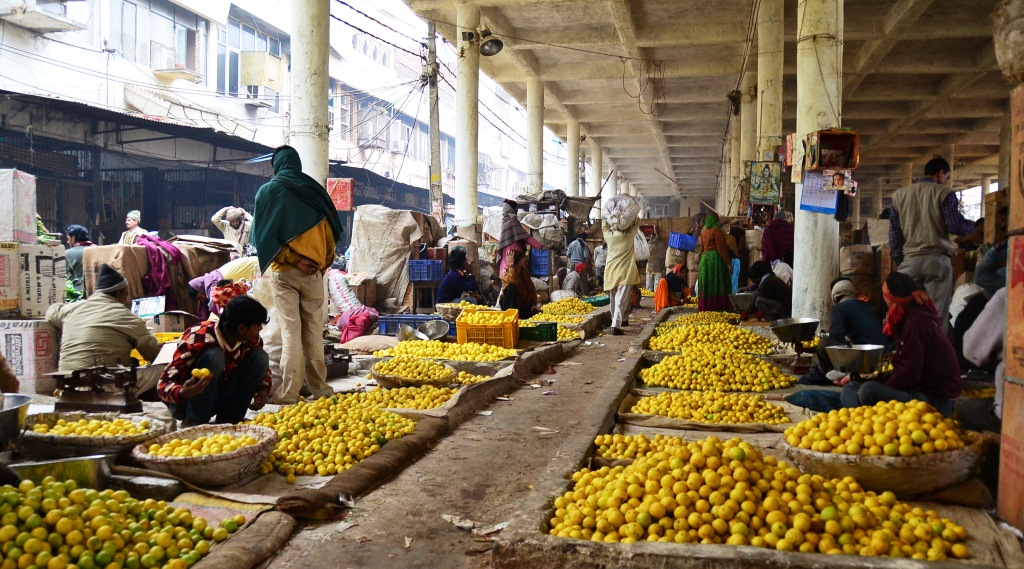Millions of Indians, time and again, reminisce the good old days where the blood-sucking private enterprise was near-nonexistent, and the society relished an epitome of food security under the crown. As one of the real successors of the British, the APMC Mandis and their neo-regal status is tossed to a coup d’état, because of the Coronavirus pandemic. The central government is now challenging their reign of over 70 years. Little did the government thought of the vital role of the mandis and their legacy, which will be in tatters once the money-minded scavengers get to the near-perfect supply chain and farmers sell directly to consumers, how tragic.
The sale of agricultural commodities in India is heavily regulated, for all the right reasons; farmers in India are barely literate, what if a greedy grownup comes to them and offers these farmers a lucrative price they can’t say no to. Here the state governments take care in the form of the Agricultural Produce Marketing Committees (APMC) established by an Act in almost all states. These Acts mandate that the first sale of farm products happens exclusively through the physical markets or mandis operated and controlled by the state governments. Do you know what is even better than this? The fees! These mandis make sure that there is a fee on buyers and sellers, on commissioning agents, warehousing agents, loading agents, and of course licensing fee for everyone involved. The system ensures that the farmers are not vulnerable to the vagaries of the open market. Some cronies have tried to challenge the “fair price”, but in reality, it is “fair” to assume that our farmers need stability and not the prices which fluctuate like the pulse, pun intended.
APMC Mandis are something innate to the socialist fabric of our great nation, without which the country must’ve had a tough time adhering to the Hindu Growth Rate. And so what if these centres of excellence were set-up in the decade following the inception of modern India, these mandis re-glorified the past till date. The past where none of the capitalists was entertained, except a few thousand licensed traders, but they don’t count anyway; they are benevolent people who give back to India more than they take for themselves. These mandis have been so beautifully designed and managed that allowing private players to participate will destroy the rustic charm of their century-old infrastructure and destroy Gandhi’s dream of having self-sufficient villages.
Before the COVID-19 pandemic, farmers were agitated and were demanding more mandis as India has just over 7,000 of these regulatory temples of anti-capitalism. These farmers are arguing for robust social security over economic independence. They are accustomed to their stroll to the nearest Mandi and handing over their produce to the state, little money is also involved but hail comradery! Since money is already brought in, it is noteworthy that most of these farmers leave these mandis with money like they actually get paid for their produce; and don’t you worry we have a proof for you!
It’s crippling to find logic in the central government’s justification of getting rid of these mandis to fight economic slowdown due to COVID-19. What economic downturn is to the west, it is economics to India. The same Indians who dutifully paid Lagaan, in the Aamir Khan starrer film, would shy away from APMC Mandis? Hell no! It was only when the Lagaan got tripled, Aamir Khan decided to break the status quo. Well now, experts are challenging farmers to sell goods directly to private enterprises or the unthinkable, directly to consumers. But probably the central government doesn’t know if in the film someone taught the game of cricket to the farmers, but here our farmers are caught off-guard. These (literally) poor fellows don’t understand the tides of profit. What if they don’t win?
The mandis are the defining factor of the Indian agricultural sector. They are the source of employment to hundreds of thousands of “licensed agents” who ensure directing some money to the farmers, to ensure their good lives further and give meaning to Jai Jawan Jai Kisan. Rightly so, farmers are not born in this great country to earn a livelihood; they are born to work hard, harvest and donate their produce to the society, and sacrifice their lives for us just like the soldiers. With the doomsday of mandis, all of this would come to an end, and Ashutosh Gowariker could have another saga to make a film on reminiscing this anti-profit marvel. But I wouldn’t hold my breath.
Read more: Let China Invest, it gets us Foreign Policy Leverage
Post Disclaimer
The opinions expressed in this essay are those of the authors. They do not purport to reflect the opinions or views of CCS.






